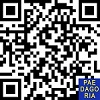EXPLORING THE DIGITAL COMPETENCE OF LECTURERS IN HIGHER EDUCATION: A LITERATURE REVIEW
Abstract
Abstract: Digital transformation demands the integration of information and communication technology tools in education. This condition is supported by the dominance of current students who are digital native generation. Although the use of technology is not new in higher education, the fact that lecturers are digital immigrants makes it difficult to integrate ICT into the lecture process, while one of the main responsibilities of higher education institutions is to facilitate students with quality learning and competent lecturers to prepare their future. This study aims to explore the level of digital competence of lecturers in higher education, the relationship, factors and efforts to improve it. The method used is a literature review with a narrative approach where the synthesised literature is international journal articles published in the 2020-2024 timeframe. The results showed 1) Digital competence is involved in ICT-integrated lectures from planning to evaluation of learning and reflective practice. 2) Lecturers with high digital competence can evaluate the quality of learning and influence student interest. 3) Age, gender, adaptability, type of institution, domicile location are significant factors of lecturers' digital competence, 4) Efforts that can be made to improve digital competence are: training, providing resource materials, reflective practice, long-term professional support, and incorporating digital competency lectures into prospective lecturer education programmes.
Abstrak: Transformasi digital menuntut integrasi perangkat teknologi informasi dan komunikasi (TIK) dalam pendidikan. Kondisi ini didukung dengan dominasi mahasiswa saat ini yang merupakan generasi digital native. Meski penggunaan teknologi bukan hal yang baru di perguruan tinggi namun fakta bahwa dosen merupakan generasi digital imgirant mengakibatkan sulitnya pengintegrasian TIK kedalam proses perkuliahan, sementara salah satu tanggung jawab utama lembaga pendidikan tinggi adalah memfasilitasi mahasiswa dengan pembelajaran berkualitas dan dosen yang kompeten untuk mempersiapkan masa depan mereka. Penelitian ini bertujuan untuk mengeksplorasi tingkat kompetensi digital dosen di perguruan tinggi, hubungan, faktor dan upaya peningkatannya. Metode yang digunakan adalah literature review dengan pendekatan naratif dimana literatur yang disintesiskan adalah artikel jurnal internasional yang diterbitkan dalam rentang waktu 2020-2024. Hasil penelitian menunjukkan 1) Kompetensi digital terlibat dalam perkuliahan terintegrasi TIK dari perencanaan sampai evaluasi pembelajaran dan praktik refektif. 2) Dosen dengan kompetensi digital yang tinggi dapat mengevaluasi kualitas pembelajaran dan mempengaruhi minat mahasiswa. 3) Usia, gender, kemampuan beradaptasi, jenis institusi, lokasi domisili menjadi faktor signifikan kompetensi digital dosen, 4) Upaya yang dapat dilakukan untuk meningkatkan kompetensi digital yaitu: pelatihan, menyediakan sumber materi, praktik reflektif, dukungan profesional jangka panjang, dan memasukkan perkuliahan kompetensi digital ke dalam program pendidikan calon dosen.
Keywords
Full Text:
PDFReferences
Alanoglu, M., Aslan, S., & Karabatak, S. (2022). Do teachers’ educational philosophies affect their digital literacy? The mediating effect of resistance to change. Education and Information Technologies, 27(3), 3447–3466. https://doi.org/10.1007/s10639-021-10753-3
Amhag, L., Hellström, L., & Stigmar, M. (2019). Teacher Educators’ Use of Digital Tools and Needs for Digital Competence in Higher Education. Journal of Digital Learning in Teacher Education, 35(4), 203–220. https://doi.org/10.1080/21532974.2019.1646169
Antonietti, C., Cattaneo, A., & Amenduni, F. (2022). Can teachers’ digital competence influence technology acceptance in vocational education? Computers in Human Behavior, 132. https://doi.org/10.1016/j.chb.2022.107266
Basilotta-Gómez-Pablos, V., Matarranz, M., Casado-Aranda, L. A., & Otto, A. (2022). Teachers’ digital competencies in higher education: a systematic literature review. In International Journal of Educational Technology in Higher Education (Vol. 19, Issue 1). Springer Science and Business Media Deutschland GmbH. https://doi.org/10.1186/s41239-021-00312-8
Bolliger, D., Shepherd, C., & Bryant, H. (2019). Faculty members’ perceptions of online program community and their efforts to sustain it. British Journal of Educational Technology, 50, 3283–3299. https://doi.org/10.1111/bjet.12734
Caena, F., & Redecker, C. (2019). Aligning teacher competence frameworks to 21st century challenges: The case for the European Digital Competence Framework for Educators (Digcompedu). European Journal of Education, 54(3), 356–369. https://doi.org/10.1111/ejed.12345
Centre, J. R., Studies, I. for P. T., & Ferrari, A. (2012). Digital competence in practice – An analysis of frameworks. Publications Office. https://doi.org/doi/10.2791/82116
Culp-Roche, A., Hampton, D., Hensley, A., Wilson, J., Thaxton-Wiggins, A., Otts, J. A., Fruh, S., & Moser, D. K. (2020). Generational Differences in Faculty and Student Comfort With Technology Use. SAGE Open Nursing, 6. https://doi.org/10.1177/2377960820941394
de Obesso, M. de las M., Núñez-Canal, M., & Pérez-Rivero, C. A. (2023). How do students perceive educators’ digital competence in higher education? Technological Forecasting and Social Change, 188. https://doi.org/10.1016/j.techfore.2022.122284
Del-Moral-Pérez, M. E., Villalustre-Martínez, L., & Neira-Piñeiro, M. del R. (2019). Teachers’ perception about the contribution of collaborative creation of digital storytelling to the communicative and digital competence in primary education schoolchildren. Computer Assisted Language Learning, 32(4), 342–365. https://doi.org/10.1080/09588221.2018.1517094
Demeshkant, N., Potyrała, K., & Tomczyk, Ł. (2020). Levels of academic teachers digital competence: Polish case-study.
Dias-Trindade, S., & Albuquerque, C. (2022). University Teachers’ Digital Competence: A Case Study from Portugal. Social Sciences, 11(10). https://doi.org/10.3390/socsci11100481
Dong, Y., Xu, C., Chai, C. S., & Zhai, X. (2020). Exploring the Structural Relationship Among Teachers’ Technostress, Technological Pedagogical Content Knowledge (TPACK), Computer Self-efficacy and School Support. Asia-Pacific Education Researcher, 29(2), 147–157. https://doi.org/10.1007/s40299-019-00461-5
Fernández-Batanero, J. M., Montenegro-Rueda, M., Fernández-Cerero, J., & García-Martínez, I. (2022). Digital competences for teacher professional development. Systematic review. European Journal of Teacher Education, 45(4), 513–531. https://doi.org/10.1080/02619768.2020.1827389
Garzón-Artacho, E., Sola-Martínez, T., Romero-Rodríguez, J. M., & Gómez-García, G. (2021). Teachers’ perceptions of digital competence at the lifelong learning stage. Heliyon, 7(7). https://doi.org/10.1016/j.heliyon.2021.e07513
Greenhow, C., Graham, C. R., & Koehler, M. J. (2022). Foundations of online learning: Challenges and opportunities. Educational Psychologist, 57(3), 131–147. https://doi.org/10.1080/00461520.2022.2090364
Guillén-Gámez, F. D., & Mayorga-Fernández, M. J. (2021). Design and validation of an instrument of self-perception regarding the lecturers’ use of ICT resources: to teach, evaluate and research. Education and Information Technologies, 26(2), 1627–1646. https://doi.org/10.1007/s10639-020-10321-1
Joo, Y. J., Lim, K. Y., & Kim, N. H. (2016). The effects of secondary teachers’ technostress on the intention to use technology in South Korea. Computers & Education, 95, 114–122. https://doi.org/https://doi.org/10.1016/j.compedu.2015.12.004
Kay, R. H., & Knaack, L. (2008). An examination of the impact of learning objects in secondary school. Journal of Computer Assisted Learning, 24(6), 447–461. https://doi.org/10.1111/j.1365-2729.2008.00278.x
Nagy, J. T., & Dringó-Horváth, I. (2024a). Factors Influencing University Teachers’ Technological Integration. Education Sciences, 14(1). https://doi.org/10.3390/educsci14010055
Nagy, J. T., & Dringó-Horváth, I. (2024b). Factors Influencing University Teachers’ Technological Integration. Education Sciences, 14(1). https://doi.org/10.3390/educsci14010055
Núñez-Canal, M., de Obesso, M. de las M., & Pérez-Rivero, C. A. (2022). New challenges in higher education: A study of the digital competence of educators in Covid times. Technological Forecasting and Social Change, 174(September 2021). https://doi.org/10.1016/j.techfore.2021.121270
Pratolo, B. W., & Solikhati, H. A. (2020). Investigating teachers’ attitude toward digital literacy in EFL classroom. Journal of Education and Learning (EduLearn), 15(1), 97–103. https://doi.org/10.11591/edulearn.v15i1.15747
Saltos-Rivas, R., Novoa-Hernández, P., & Rodríguez, R. S. (2023). Understanding university teachers’ digital competencies: a systematic mapping study. Education and Information Technologies, 28(12), 16771–16822. https://doi.org/10.1007/s10639-023-11669-w
Sánchez-Cruzado, C., Santiago Campión, R., & Sánchez-Compaña, M. T. (2021). Teacher digital literacy: The indisputable challenge after covid-19. Sustainability (Switzerland), 13(4), 1–29. https://doi.org/10.3390/su13041858
Singh, V., & Thurman, A. (2019). How Many Ways Can We Define Online Learning? A Systematic Literature Review of Definitions of Online Learning (1988-2018). American Journal of Distance Education, 33(4), 289–306. https://doi.org/10.1080/08923647.2019.1663082
Sitompul, B. (n.d.). Kompetensi Guru dalam Pembelajaran Di Era Digital.
Srivastava, S., & Dangwal, K. L. (2021). Digital Competence: Where do the Higher Education Teachers Stand? Universal Journal of Educational Research, 9(10), 1765–1772. https://doi.org/10.13189/ujer.2021.091005
Starkey, L. (2020). A review of research exploring teacher preparation for the digital age. Cambridge Journal of Education, 50(1), 37–56. https://doi.org/10.1080/0305764X.2019.1625867
Tejedor, S., Cervi, L., Pérez-Escoda, A., & Jumbo, F. T. (2020). Digital literacy and higher education during COVID-19 lockdown: Spain, Italy, and Ecuador. Publications, 8(4), 1–17. https://doi.org/10.3390/publications8040048
Wang, C., Zhang, M., Sesunan, A., & Yolanda, L. (2023). PERAN TEKNOLOGI DALAM TRANSFORMASI PENDIDIKAN DI INDONESIA Tinjauan dampak terkini gerakan Merdeka Belajar.
Wong, K. M., & Moorhouse, B. L. (2021). Digital competence and online language teaching: Hong Kong language teacher practices in primary and secondary classrooms. System, 103. https://doi.org/10.1016/j.system.2021.102653
Yahya, M., Otomotif, P. T., & Elektro, W. T. (2023). PROSIDING SEMINAR NASIONAL Implementasi Artificial Intelligence (AI) di Bidang Pendidikan Kejuruan Pada Era Revolusi Industri 4.0. https://journal.unm.ac.id/index.php/Semnasdies62/index
Yoon, S. H. (2022). Gender and digital competence: Analysis of pre-service teachers’ educational needs and its implications. International Journal of Educational Research, 114. https://doi.org/10.1016/j.ijer.2022.101989
DOI: https://doi.org/10.31764/paedagoria.v15i3.23619
Refbacks
- There are currently no refbacks.
Copyright (c) 2024 Fahlulia Rahma Shofiana

This work is licensed under a Creative Commons Attribution-ShareAlike 4.0 International License.
Paedagoria : Jurnal Kajian, Penelitian dan Pengembangan Kependidikan
Fakultas Keguruan & Ilmu Pendidikan | Universitas Muhammadiyah Mataram.
_______________________________________________
 | Paedagoria : Jurnal Kajian, Penelitian dan Pengembangan Kependidikan |
______________________________________________
CURRENT INDEXING:
EDITORIAL OFFICE:


















